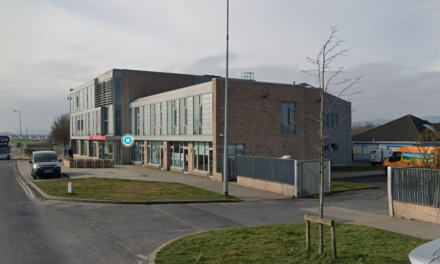“Young people and older people,” community worker Lynda Wakefield says, “are probably the two most discriminated-against demographics in society. They are also probably the most discriminating in terms of ageism.”
She notes that while it is normal for to have youth centres and retirement homes, common areas where they both can mix are a rarer thing altogether. “We don’t make it easy for the two to mix,” she says, “so when we do, we need to make it meaningful.”
Having both age groups interact with each other, therefore, can be a very valuable experience, and in her capacity with Mahon CDP in Cork, Lynda has organised several intergenerational groups.
“Before we get a group together,” she says, “we meet the participants beforehand. We ask both the young and older people their opinions about both age groups, getting positive and negative perceptions. It highlights the stereotypes both generations have about each other, and the intergenerational groups then challenge those.”
The participants are always reluctant to have their pre-conceptions known by the other group, as they realise how wrong their stereotype had been. One of the activities organised was a digital photography course which was a resounding success.
“Young people helped the older people to use the technology, while the older people taught the young people about the history of the area, and brought context to their photographs,” Linda says.
There was an exhibition in the city library afterwards, and one of the young people was delighted to have one of their photographs purchased. An intergenerational photography club has since been set up.
Many other activities like these are taking place across the country. They are being especially promoted thanks to it being the EU Year of Active Ageing (and Solidarity Between The Generations) and one is the already successful Log On Learn Programme.
Computers and the Internet in general play an integral role in modern life, be it for shopping, banking or gathering news and information. Only 19% of Irish people between 65 and 74 used the Internet at all in 2011, and the ‘widening of the digital divide’ means that older people are often excluded from many aspects of modern life.
The idea of the Log On Learn Programme allows for older people to learn basic IT skills and how to use the Internet over eight one-on-one modules. Tying in with the aim of promoting solidarity between generations, their tutors are Transition Year students, while the one-on-one nature of the lessons ensures that the older person can learn what they want and at their own pace.
Approximately 2,000 older people have been taught in 180 schools since the programme was launched by then Minister Marie Hoctor in 2008, and it is hoped that there will be a 50% expansion by the end of the 2012.
When it comes to intergenerational practice, Lynda found guidelines set by the Beth Johnson Foundation in the UK were most helpful. She says it’s important to have a gender balance in the intergenerational groups.
There were some challenges, however “The older people had a lot of free time in the day,” she says, “while the younger people were at school in the day and free at night. It was hard to find a compatible time, but we ended up meeting up at teatime, getting food in for the group.”
Other activities include intergenerational table quizzes. “Two young and two older people are put on each team,” Lynda says, “and both groups are always amazed at the level of knowledge of the other. In a short period of time a rapport gets built up. We also have intergenerational walks, while every Valentine’s Day the group organises a meal for older people, where the boys cook and the girls serve the food, which is really appreciated.”
And appreciation can make a day or even change a life.


